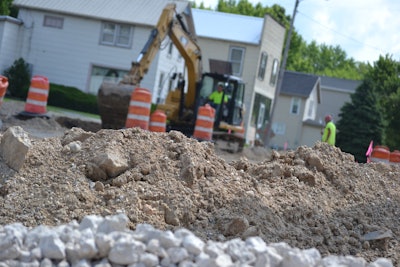
The Trump administration’s recent modernization of the National Environmental Policy Act (NEPA) is a “long overdue remedy” bringing “much-needed clarity after decades of conflict and confusion” that have needlessly delayed essential transportation projects, the American Road & Transportation Builders Association (ARTBA) told a federal court September 2.
The ARTBA filing at the U.S. District Court for the Western District of Virginia presents a vigorous defense of the administration’s efforts to update NEPA against an onslaught by various groups seeking to strike down the reforms in court. ARTBA and its allies argue that reforming NEPA will improve a decades-old review procedure that has unnecessarily stymied critically needed improvements to the nation’s transportation infrastructure.
NEPA was enacted in 1970 to ensure that federal agencies consider environmental effects before undertaking major federal actions, including transportation improvement projects, that will significantly impact the environment.
However, ARTBA told the court that NEPA had become an “impenetrably complex regulatory program that applies in circumstances that Congress never could have intended, requires analyses that often serve no practical purpose, and results in endless litigation intended to obstruct and delay.” The Trump administration’s changes to NEPA, ARTBA explained, “reduce the costs and delays that have become endemic to the NEPA process, bringing much-needed clarity after decades of conflict and confusion.”
ARTBA is joined in its efforts by the American Farm Bureau Federation, American Forest Resource Council, American Fuel & Petrochemical Manufacturers, American Petroleum Institute, Chamber of Commerce of the United States of America, Federal Forest Resource Coalition, Interstate Natural Gas Association of America, and National Cattlemen’s Beef Association. The case is Wild Virginia et. al. v. Council on Environmental Quality et. al. A decision on whether to place the NEPA reforms on hold while litigation continues is expected by September 14, which is the date the new rules are scheduled to take effect.



















